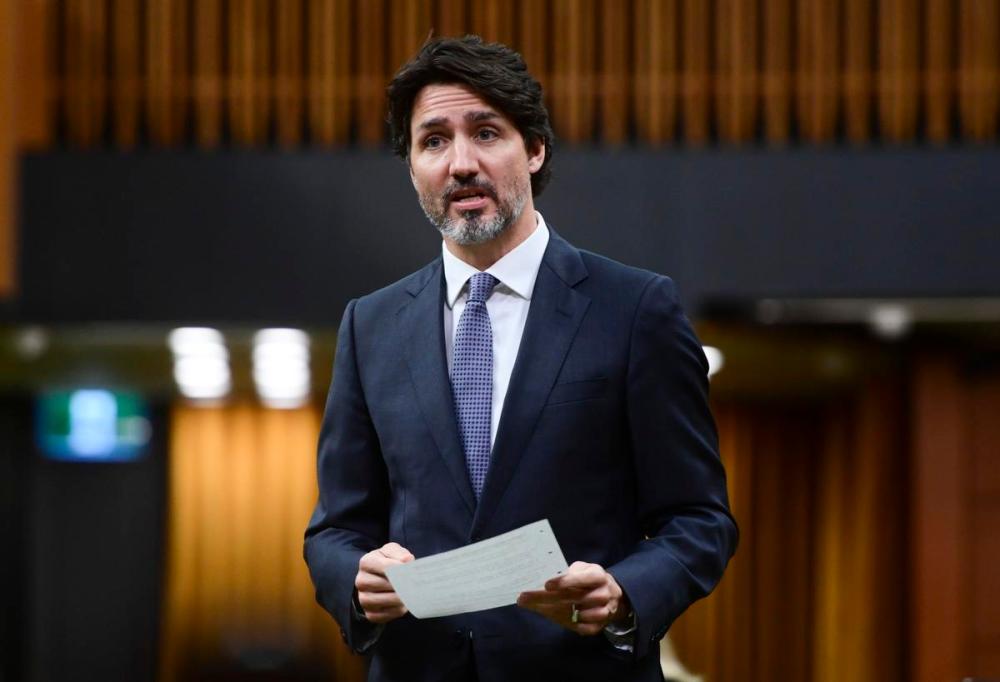The Supreme Court rules Canada’s carbon price is constitutional. It’s a big win for Justin Trudeau’s climate plan
Advertisement
Read this article for free:
or
Already have an account? Log in here »
To continue reading, please subscribe:
Monthly Digital Subscription
$0 for the first 4 weeks*
- Enjoy unlimited reading on winnipegfreepress.com
- Read the E-Edition, our digital replica newspaper
- Access News Break, our award-winning app
- Play interactive puzzles
*No charge for 4 weeks then price increases to the regular rate of $19.95 plus GST every four weeks. Offer available to new and qualified returning subscribers only. Cancel any time.
Monthly Digital Subscription
$4.99/week*
- Enjoy unlimited reading on winnipegfreepress.com
- Read the E-Edition, our digital replica newspaper
- Access News Break, our award-winning app
- Play interactive puzzles
*Billed as $19.95 plus GST every four weeks. Cancel any time.
To continue reading, please subscribe:
Add Free Press access to your Brandon Sun subscription for only an additional
$1 for the first 4 weeks*
*Your next subscription payment will increase by $1.00 and you will be charged $16.99 plus GST for four weeks. After four weeks, your payment will increase to $23.99 plus GST every four weeks.
Read unlimited articles for free today:
or
Already have an account? Log in here »
Hey there, time traveller!
This article was published 25/03/2021 (1749 days ago), so information in it may no longer be current.
OTTAWA—The Supreme Court of Canada ruled Thursday that the federal government has the power to impose a minimum carbon price across the country in the name of reducing greenhouse gas emissions “as a matter of national concern.”
The decision is a victory for Prime Minister Justin Trudeau and his Liberal government, who have staked the success of their climate plan on Ottawa’s authority to ensure there is a minimum carbon price in all provinces and territories.
In a majority decision, six of the nine judges on Canada’s top court upheld the federal Greenhouse Gas Pollution Pricing Act as constitutional in its entirety, dismissing legal challenges from the governments of Ontario, Alberta and Saskatchewan that argued the law interfered with provincial jurisdiction. The court sided with federal government lawyers who made the case that Ottawa has the authority to impose a minimum carbon price because reducing greenhouse gas emissions is a “national concern” under the Constitution’s “peace, order and good government” clause.

“This matter is critical to our response to an existential threat to human life in Canada and around the world,” the majority decision reads.
The court found that provinces are also limited in their ability to combat the threat of climate change alone, and that Canada’s overall effort to reduce emissions would be jeopardized if any one province refused to take part in carbon pricing schemes with a minimum level of stringency.
In light of this, the court determined that potential interference in a province’s “preferred balance between economic and environmental considerations” is justified, because of the harms that would occur if Ottawa could not lead a national response to climate change.
“This irreversible harm would be felt across the country and would be borne disproportionately by vulnerable communities and regions in Canada,” the decision says. “The impact on those interests justify the limited constitutional impact on provincial jurisdiction.”
The federal carbon price law was enacted in 2018 and created a requirement for provinces to either make their own carbon pricing schemes — through a tax or cap-and-trade system — that meet minimum standards set by Ottawa. Provinces that do not create such systems are subject to the federal “backstop” carbon price, which includes a “fuel charge” on gasoline and other fuels that is offset by rebates sent to households, and a separate pricing system for heavy industries like cement and steel production.
The federal minimum price is currently set at $30 per tonne of emissions, and the Liberal government intends to keep raising it until it hits $170 per tonne in 2030.
The policy has been the locus of a heated political battle, however, with federal Conservatives and like-minded provincial governments deriding the carbon price as a “job-killing tax on everything.” Conservative Leader Erin O’Toole has vowed to scrap the policy if he wins power, and has promised to unveil a credible plan to reduce emissions without it.
The Liberal government, meanwhile, has defended the carbon price as an essential tool to reduce emissions and fulfil its promise to exceed Canada’s current goal of reducing emissions to 30 per cent below 2005 levels by 2030, and to hit net-zero emissions by 2050.
More to come.
Alex Ballingall is an Ottawa-based reporter covering federal politics for the Star. Follow him on Twitter: @aballinga


